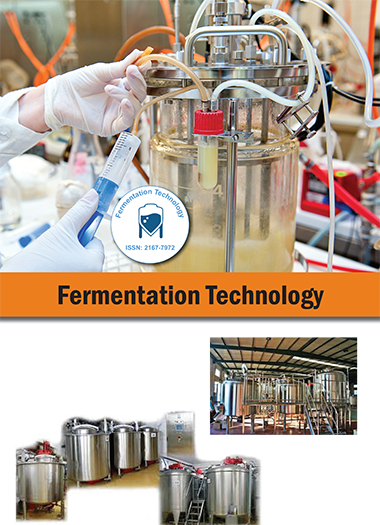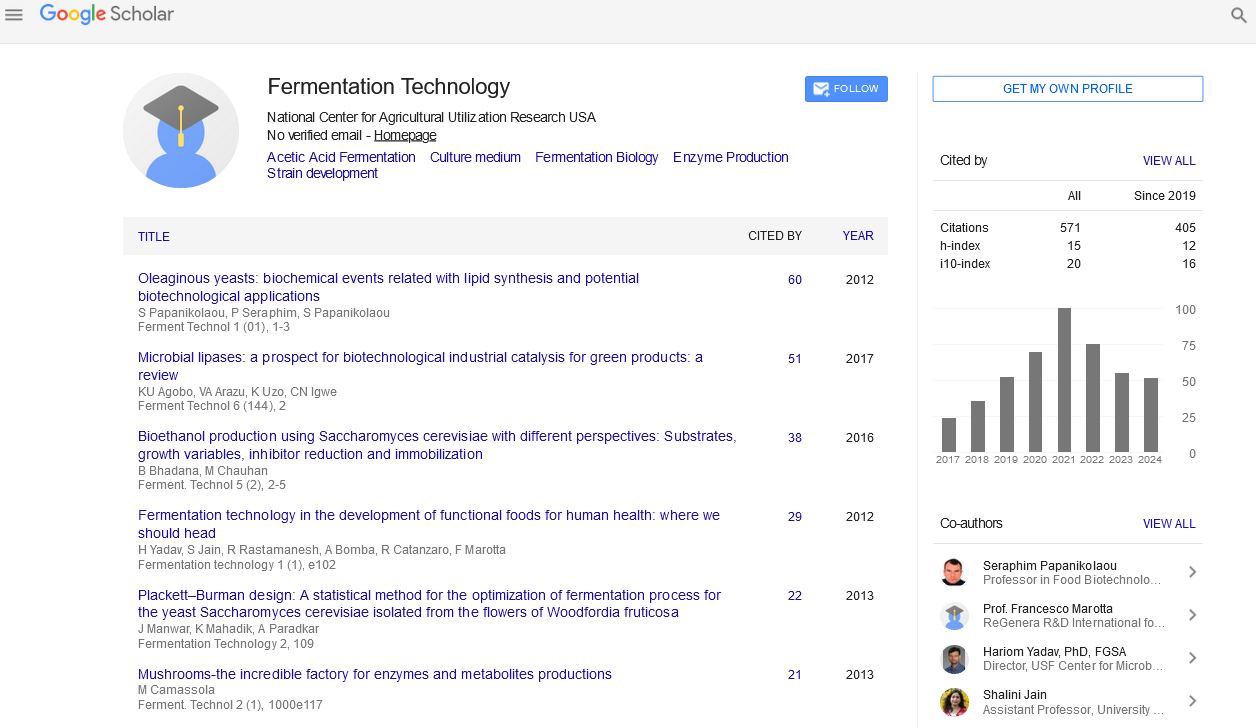Indexed In
- Open J Gate
- Genamics JournalSeek
- Access to Global Online Research in Agriculture (AGORA)
- RefSeek
- Hamdard University
- EBSCO A-Z
- OCLC- WorldCat
- Publons
Useful Links
Share This Page
Journal Flyer

Open Access Journals
- Agri and Aquaculture
- Biochemistry
- Bioinformatics & Systems Biology
- Business & Management
- Chemistry
- Clinical Sciences
- Engineering
- Food & Nutrition
- General Science
- Genetics & Molecular Biology
- Immunology & Microbiology
- Medical Sciences
- Neuroscience & Psychology
- Nursing & Health Care
- Pharmaceutical Sciences
Beneficial microbes for the treatment of dyes contaminated wastewater
World Congress on Beneficial Microbes: Food, Pharma, Aqua & Beverages Industry
August 25-27, 2015 Valencia, Spain
Zaharah Ibrahim
University Teknologi Malaysia, Malaysia
Scientific Tracks Abstracts: Ferment Technol
Abstract:
The removal of colour, especially from coloured wastewater containing azo dyes has been a great challenge over the last decade and until now; there is no single and economically treatment method. A good example is the textile wastewater, classified as the most polluted industrial wastewater, may contain dyes, dye break down products, plant materials, organic solvents and detergents that are detrimental to the environment and pose health threats to the human population. To meet the regulatory compliance, the industries have to spend several million dollars in capital investment and hundreds of thousands of dollars in annual operating costs. As effective treatment plant is generally expensive and unaffordable, the application of beneficial microbes able to decolourise and transform coloured compounds into simpler and non-hazardous compounds is a good alternative and timely solution. The research challenge was to develop mixed culture of microorganisms capable of removing colour from dye containing effluents. Under the sequential facultative anaerobic-aerobic process, the selected mixed culture of bacteria which were later identified as Brevibacillus panacihumi strain ZBI, Lysinibacillus puciformis strain ZB2 and Enterococcus faecalis strain ZL when used for the treatment of real wastewater showed up to 80-90% of decolourisation followed by detection of smaller and readily degradable molecules for safe discharge of effluent. The wastewater was also analysed for its water quality parameters and ecotoxicity tests. Utilising this mixed culture of bacteria offers alternative green solution to replace or complement the use of chemicals in conventional methods for treatment of coloured wastewater.
Biography :
Zaharah Ibrahim is an Associate Professor at the Faculty of Biosciences and Medical Engineering, Universiti Teknologi Malaysia, Malaysia. She graduated from Northern Illinois University, USA with BS (Biochemistry) and MS (Chemistry), Phd from Universiti Teknologi Malaysia. Her research interest in Environmental Biotechnology focuses on the biological treatment of difficult organics such as azo dyes, volatile, non-volatile aromatic compounds and toxic heavy metals originating from industrial effluents. Highly adapted microorganisms were selected and applied as suspension, biofilms and biogranules in the treatment process. Current progress in research includes using molecular tools for monitoring treatment of real textile wastewater.
Email: zaharah@fbb.utm.my

